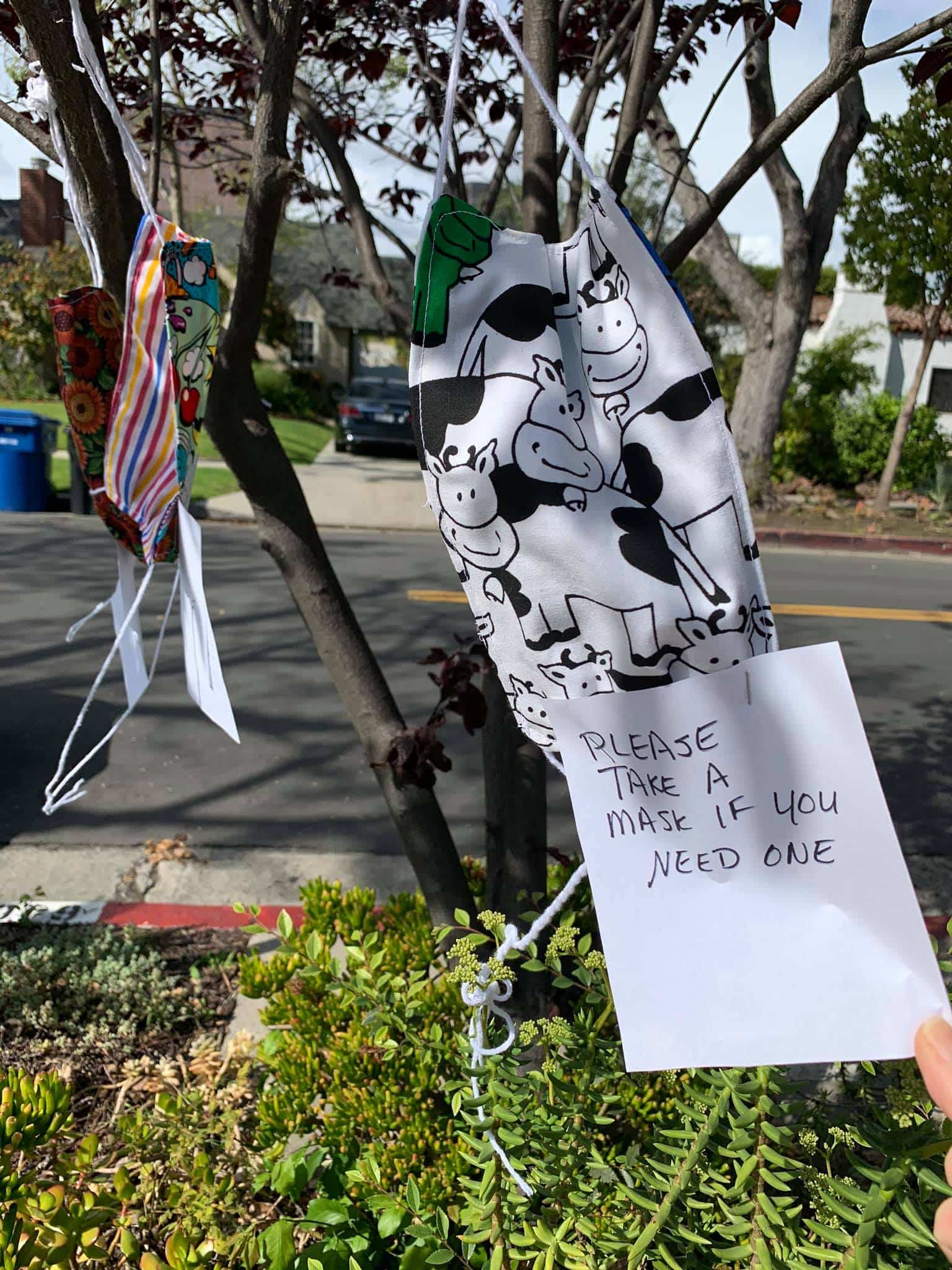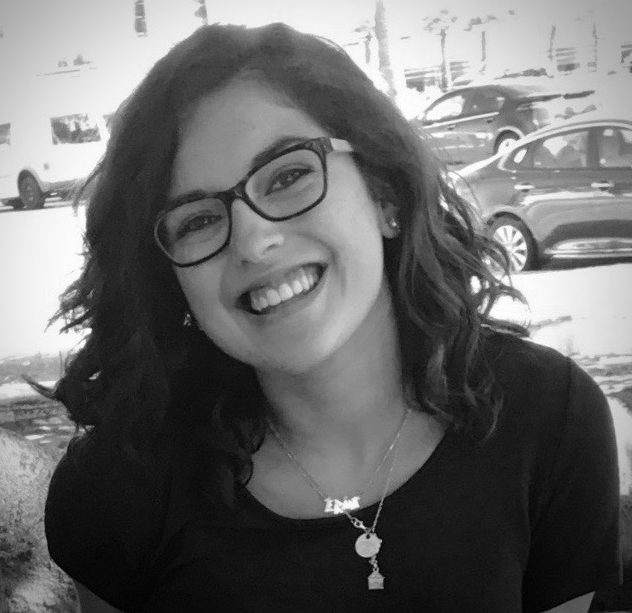
Before the coronavirus outbreak, Los Angeles tallis designer Wendy Light was creating intricate tallitot out of any fabric imaginable. Now she has switched her focus to making free, brightly patterned face-masks for anyone in need.
In late March, Light started with two masks, for herself and her husband, because they have a higher risk of being infected. Now she has made more than 300, using stylish patterns and fabrics — ranging from cow patterns, stripes, flowers and frogs to polka dots, jukeboxes and milkshakes. She even made Passover-themed masks using patterns that resembled the Ten Plagues.
“It was fun for me to revisit fabric that I used for various projects over the years,” Light said. “[The patterns] are fun and silly. We need to laugh. We need to set up the element of fun as we are doing what we are told to be doing.”
Self-quarantined since Purim, Light said she decided to make cloth masks so that more N95 masks are available for essential works and those on the front lines.
“[The patterns] are fun and silly. We need to laugh. We need to set up the element of fun as we are doing what we are told to be doing.” — Wendy Light
“Initially, I got some backlash from people [after making a Facebook post with comments like]: ‘Well, that’s a stupid thing to do.’ ‘Why would you want to make that? They’re not N95.’ And I was like, ‘This is not the purpose. This is not for the health care workers. This is not for [those on] the front lines. This is to free up the N95 masks, and everyone should have a mask.”
Light has received requests for masks locally in Los Angeles and all around the country. Medical offices, JCCs and mutual friends have asked for masks in groups of pairs, 10s and 20s, she said.“It’s not like I’m cranking 50 to 100 at a time but I’m doing something.”
Shipping them, however, did cause some problems, Light said. She tried to send masks to an oncologist in San Francisco who had no supplies. Two weeks later, the package was returned with the message “No mailbox.” She also tried to send a package of 20 masks to a senior center in Philadelphia that needed masks when preparing food for the residents. Her neighbor said those also were returned twice, once for not putting enough postage on the package and another for being delivered to an address that didn’t exist.
“It was weighed and franked by the post office,” Light said. “It became expensive, sending them out and getting them back when obviously the post office was refusing the deliver packages.”
Angelenos still can obtain as many masks from Light as needed. All they have to do is request a number. When they’re ready, she leaves the package outside her door for easy and safe pickup.
She also has been leaving masks on a tree outside her house with a note that says, “Please take a mask if you need one.” Every day she replenishes the masks on the tree.
“[This is] how I can help,” Light said. “I think things are going to be different after this is all over. I’m hoping different for the better. That we’re really going to look at what we have [and ask], ‘How do we give people what they want and what they need, and not just what we want to give them?’ ”























 More news and opinions than at a Shabbat dinner, right in your inbox.
More news and opinions than at a Shabbat dinner, right in your inbox.